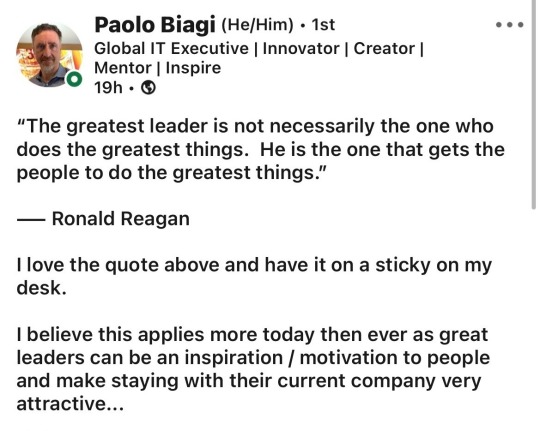#Leadership development
Explore tagged Tumblr posts
Text

Women, Work, and the Future of Japan: A Catalyst for Change
Japan's post-war economic resurgence was once driven by its distinct work culture, but this same culture has now transformed into a double-edged sword, imperiling the nation's future prosperity. Historically, Japan's collectivist ethos, rooted in the pursuit of "Wa" (harmony), fostered stability and cooperation, but in today's context, it often manifests as a rigid hierarchy where excessively long working hours are misconstrued as the pinnacle of loyalty and dedication. This has severe human consequences, including "karoshi" (death from overwork), plummeting birth rates, and a dwindling workforce.
The country's inherent risk aversion, stemming from a deep respect for tradition, hinders innovation, with the fear of disrupting social balance outweighing the benefits of progress. This is evident in Japan's struggles to keep pace with global technological advancements, particularly in software and artificial intelligence, leading to stagnation and erosion of its competitive edge. Furthermore, traditional workplaces prioritize visibility and seniority over merit, resulting in ineffectual leadership, misguided decision-making, and a brain drain as talented individuals seek opportunities abroad.
Recent government initiatives aimed at improving work-life balance and promoting sustainability offer hope, as do forward-thinking companies adopting flexible work arrangements to attract top talent. However, a profound cultural shift is necessary for Japan to reclaim its innovative forefront. This requires blending cherished traditions with the uncertainties of innovation, fostering an environment that encourages risk tolerance, creativity, and merit-based advancement. A gradual shift in societal values, emphasizing individual creativity alongside collectivist principles, is crucial, as are structural reforms in workplaces and educational institutions promoting meritocracy, flexibility, and lifelong learning.
Interwoven with these challenges is the complex situation of Japanese women, who face traditional expectations, societal pressures, and workplace demands that profoundly impact their lives and the country's future. The notion of "ikigai" (finding purpose in life) often narrowly translates to family devotion for women, leading to unfulfilled potential and stagnation. This results in low labor force participation rates, a persistent glass ceiling, and underutilized parental leave policies, placing an undue burden on women and threatening individual well-being and the broader social and economic landscape.
A growing pushback against these traditional expectations, marked by women-led startups, flexible work arrangements, and paternal leave initiatives, signals a tentative shift towards inclusivity. To truly empower Japanese women, however, a profound societal transformation is needed, involving a reckoning with outmoded gender roles. Education and awareness campaigns, alongside the promotion of male allies embodying modern masculinity, can challenge these norms. By celebrating the diverse contributions and aspirations of its female population, Japan can dismantle barriers, realizing the full potential of its women and securing a vibrant future for the nation. The path forward hinges on choosing between the status quo and a new trajectory that values, supports, and empowers Japanese women to thrive, ultimately determining the country's prosperity.
Japanese work culture is unsustainable (pigallisme, April 2024)
youtube
Sunday, December 1, 2024
#japan work culture#innovation#tradition#social change#gender equality#economic prosperity#labor reform#societal norms#cultural evolution#east asian studies#future workforce#work-life balance#leadership development#organizational change#asian economy#global competitiveness#women in the workforce#japanese society#modernization challenges#video essay#ai assisted writing#machine art#Youtube
7 notes
·
View notes
Text
Theories of Leadership
Leadership theory is a vast field with various approaches and models that attempt to explain and guide leadership practices. Here are some prominent theories of leadership:
Trait Theory: This early theory posits that effective leaders possess specific traits or characteristics, such as intelligence, confidence, charisma, and determination, which make them natural leaders.
Behavioral Theories: These theories focus on the actions and behaviors of leaders rather than inherent traits. They classify leadership styles into categories like autocratic, democratic, and laissez-faire leadership, and assess their effectiveness.
Contingency Theories: Contingency models, including Fiedler's Contingency Model and Hersey-Blanchard's Situational Leadership Theory, propose that effective leadership depends on various situational factors, such as the leader's style, the followers, and the context.
Transformational Leadership: Transformational leaders inspire and motivate their followers to achieve higher levels of performance. They often use charisma, vision, and individualized consideration to encourage personal growth in their teams.
Transactional Leadership: Transactional leaders focus on exchanges with their followers. They set clear expectations, provide rewards or punishments based on performance, and ensure that their followers meet certain standards.
Servant Leadership: This philosophy emphasizes leaders' role as servants to their followers. Servant leaders prioritize the well-being of their teams and aim to serve and support their needs.
Authentic Leadership: Authentic leaders are genuine, self-aware, and lead by example. They align their actions with their values and encourage open and honest communication within their teams.
Situational Leadership: Developed by Hersey and Blanchard, this theory suggests that leadership style should adapt to the readiness and development level of the followers. Effective leaders adjust their behavior to the specific needs of their team members.
Path-Goal Theory: This theory, proposed by Robert House, posits that leaders should help followers achieve their goals by clarifying paths, removing obstacles, and providing support, which can improve job satisfaction and performance.
Leader-Member Exchange (LMX) Theory: LMX theory focuses on the unique relationships that develop between leaders and their individual followers. It suggests that leaders often have varying relationships with different members of their teams.
Charismatic Leadership: Charismatic leaders inspire followers through their personal charm, vision, and charisma. They have a strong influence on their teams and can create a sense of shared mission.
Trait and Skills Theory: This modern approach combines trait-based leadership research with the development of leadership skills. It recognizes that while certain traits are beneficial, leadership can also be learned and developed.
Ethical Leadership: Ethical leadership places a strong emphasis on moral and ethical principles. Ethical leaders act with integrity, model ethical behavior, and make ethical decisions.
Distributed Leadership: This perspective suggests that leadership is not the sole responsibility of one individual but can be distributed among team members. It emphasizes shared leadership and collaboration.
Adaptive Leadership: Adaptive leaders focus on facilitating change and guiding organizations or teams through challenges. They encourage flexibility and innovation.
These are just a few examples of the many leadership theories and models. Leadership scholars and practitioners often draw from multiple theories to adapt their leadership approach to specific situations and contexts.
#philosophy#epistemology#knowledge#learning#education#chatgpt#ethics#psychology#economics#politics#Leadership Philosophy#Leadership Theories#Leadership Styles#Leadership Development#Leadership Skills#Leadership and Ethics
46 notes
·
View notes
Text
"It's better to endure the discomfort of the truth now than to suffer the discomfort of the lie later."

Simon Oliver Sinek is an English-born American author and inspirational speaker on business leadership. His books include Start with Why and The Infinite Game.
Author of Bestsellers: Simon Sinek is the author of several influential books on leadership and business, including the bestsellers "Start with Why," "Leaders Eat Last," and "The Infinite Game." His books focus on inspiring leaders and organizations to think differently.
Golden Circle Concept: Sinek is well-known for his "Golden Circle" concept, introduced in his book "Start with Why." The idea emphasizes the importance of understanding "Why" an organization exists, followed by "How" it operates, and "What" it does. This concept has become a foundational principle in leadership and marketing.
Inspirational Speaker: As an inspirational speaker, Sinek has delivered numerous talks and presentations on leadership, motivation, and organizational behavior. His TED Talk, "How Great Leaders Inspire Action," is one of the most-watched TED Talks of all time, with millions of views.
Background in Anthropology: Sinek's educational background includes a degree in cultural anthropology from Brandeis University. His understanding of human behavior and culture informs much of his work on leadership and organizational dynamics.
Business Consultant: In addition to his writing and speaking engagements, Sinek works as a business consultant, helping organizations develop leadership strategies and cultivate inspiring workplace cultures. He has worked with a variety of companies, including large corporations and non-profits, to implement his leadership principles.
#Leadership#Inspirational Speaker#Author#Start with Why#The Infinite Game#Golden Circle#Business Strategy#Motivational Speaker#TED Talk#Organizational Behavior#Leadership Development#Cultural Anthropology#Leadership Principles#Business Consulting#Management#Innovation#Workplace Culture#Strategic Thinking#Personal Growth#Visionary Leadership#quoteoftheday#today on tumblr
2 notes
·
View notes
Text
Embracing Redundancy — My Unconventional Path to Career Progression
Exploring the rugged terrains of Australia, going off-road isn’t just a pastime for me; it’s a profound lesson in resilience, discovery, and stewardship. There’s a thrill in navigating unfamiliar paths, in the challenge and unpredictability it brings. But beyond the adventure, it’s a practice grounded in respect — for the land, for the journey, and for those who will follow. The off-roader’s…

View On WordPress
3 notes
·
View notes
Text

True leaders are not driven by power and authority, but by a sincere desire to serve and uplift others. They prioritize the well-being, growth, and development of their team members, catering to their needs and aspirations.
Seek out those who embody this!
#workplace#inspiration#leadership#motivation#career success#professional growth#teamwork#leadership development#inspiring quotes#positivity#empowered#success mindset#wisdom#lead by example#leadership skills#team building
5 notes
·
View notes
Text
Are you a Leader or a Follower? Exploring both Avenues
Daily writing promptAre you a leader or a follower?View all responses The choice between being a leader or a follower depends on personal preferences and the context. Leaders take charge, provide guidance, and make decisions, while followers support and implement the leader’s vision. Some people thrive in leadership roles, enjoying the responsibility and the opportunity to influence others.…

View On WordPress
#dailyprompt#dailyprompt-1939#effective leadership#leadership#leadership development#leadership in the workplace#leadership mindset#leadership qualities#leadership skills#leadership strategies#leadership styles#leadership success#leadership techniques#leadership theories#leadership tips#leadership training#leadership traits
2 notes
·
View notes
Text
Systems Thinking: Using The 5 Whys
By Linda Fisher Thornton In my Applied Ethics Class, I introduce my students to the Five Whys. This is a simple and valuable tool for getting to the root cause of problems. We may think we understand why something happened but when we “fix” whatever we think is the sole cause we don’t always get the intended result. The reason for that is that problems tend to have multiple causes. They happen…

View On WordPress
0 notes
Text
Creativity Over Code: Why Human Skills Will Shape the Future of Work

The Human Advantage in a Technological World
In an age where artificial intelligence can generate emails, analyze complex data, and even simulate conversations, it’s tempting to believe that machines are taking over. But here’s the truth: AI is only as powerful as the humans guiding it.
What truly sets great organizations apart today isn’t faster algorithms or smarter machines—it’s creativity, leadership, and emotional intelligence. These are the human qualities AI can’t replicate, and they’re becoming the defining edge in modern workplaces. That’s why companies are increasingly turning to AI keynote speakers, keynote speakers on leadership, and speakers on creativity to reignite their teams and future-proof their success.
Why Soft Skills Are Your Strongest Strategic Investment
While technical capabilities remain important, the rise of AI has made soft skills even more critical. Here’s why:
1. Creativity Fuels Progress
Innovation begins where logic ends.
The businesses leading their industries—whether in design, finance, or healthcare—are those that dare to think differently.
Speakers on creativity help organizations tap into that bold, imaginative thinking that sets trends, not just follows them.
2. Leadership Is Becoming More Human
Leadership today isn’t about having all the answers—it’s about asking the right questions.
Keynote speakers on leadership emphasize emotional intelligence, active listening, and the ability to adapt during uncertainty.
It’s not about control—it’s about connection.
3. AI Needs a Human Touch
AI can process data, but only people can create meaning from it.
A top AI keynote speaker will explain how success lies in the partnership between machine efficiency and human insight.
AI doesn’t have vision. People do.
4. Human-Centered Skills Build Resilient Teams
Teams that value empathy, creativity, and communication don’t just perform better—they grow stronger in crisis.
The ability to collaborate across disciplines and inspire trust is what sustains innovation and productivity.
How to Future-Proof Your People
The workplace of the future belongs to companies that build cultures where creativity, curiosity, and leadership thrive. Here’s how to start:
● Bring in the Right Voices
Booking a speaker on creativity, AI keynote speaker, or keynote speaker on leadership can introduce transformative thinking into your team.
These experts bring real-world insights and inspire action—not just motivation.
● Encourage Creative Autonomy
Give employees room to experiment and take risks. Innovation rarely happens under micromanagement.
Celebrate not just successes, but learning from failure too.
● Train Beyond Technical Skills
Offer coaching in emotional intelligence, design thinking, storytelling, and decision-making under pressure.
These skills empower teams to lead creatively, not just follow protocols.
● Build Collaborative Cultures
Foster a workplace where ideas can flow across departments, hierarchies, and disciplines.
Creativity often comes from unlikely pairings—encourage those connections.
● Rethink the Way You Define “Success”
Beyond KPIs and metrics, focus on how well your team can adapt, inspire, and innovate.
The future workforce will be measured by impact, not just efficiency.
The Influence of Inspiring Keynote Speakers
Bringing in the right keynote speaker on leadership or AI keynote speaker can be the catalyst your team needs to evolve.
They don’t just inform—they ignite.
They help leaders see the potential of merging AI with human intuition.
And most importantly, they prepare teams to navigate tomorrow’s challenges with confidence and creativity.
Creativity, Leadership, and Emotional Intelligence: The Ultimate Trio
As automation becomes the norm, human qualities are becoming the differentiator. Your ability to lead with empathy, solve problems creatively, and stay adaptable will shape the future of work far more than any machine ever will.
So whether you’re running a company, building a team, or standing on a stage—remember: AI can replicate actions, but it’s your ideas, your passion, and your leadership that make a lasting impact.
#ai keynote speaker#Keynote Speaking#Innovation Coaching#Leadership Development#Consulting for Business Growth#innovation keynote speaker#innovation speaker#keynote speaker on leadership#leadership development speakers#leadership keynote speaker#speakers for leaders#speakers on creativity
0 notes
Text

Elevate your career and inspire others with effective leadership development. Gain the essential skills, strategic mindset, and confidence to lead teams, drive change, and make a lasting impact in any organization.
0 notes
Text
In our relentless pursuit of excellence within the fast-paced, ever-evolving landscapes of business and personal development, leadership undeniably stands as a cornerstone for success. #Leadership #LeadershipDevelopment #Growth
#Adrian Koehler#Business Management#Colorado Springs#Leadership#Leadership Development#Mike Phillips#Personal Growth#Podcast#Success#Take New ground#Video
0 notes
Text
The Philosophy of Leadership
The philosophy of leadership is a multidisciplinary field that explores the nature, principles, and ethics of effective leadership. It encompasses various philosophical, psychological, and ethical perspectives on leadership and aims to understand what constitutes successful and ethical leadership. Here are some key elements and areas of focus in the philosophy of leadership:
Leadership Ethics: Examining the ethical responsibilities and moral principles that guide leaders in their decision-making and actions.
Leadership Theories: Analyzing different leadership theories, such as transformational leadership, servant leadership, and ethical leadership, to understand the underlying philosophies and values that inform these approaches.
Leadership and Power: Investigating the relationship between leadership and power, including how leaders acquire, use, and share power, and the ethical implications of power dynamics.
Leadership and Morality: Exploring the moral dimensions of leadership, including the moral character of leaders and the moral dilemmas they face in their roles.
Leadership and Authenticity: Examining the concept of authentic leadership, which emphasizes the importance of aligning personal values and beliefs with one's leadership style.
Leadership and Virtue Ethics: Applying virtue ethics to leadership, focusing on the development of virtuous leadership traits and the role of character in effective leadership.
Leadership and Social Justice: Investigating how leaders can promote social justice, equity, and fairness through their actions and policies.
Leadership and Followership: Understanding the role of followers in the philosophy of leadership and how leaders can foster positive relationships with their followers.
Leadership in Different Contexts: Considering how leadership philosophy may vary across different contexts, such as business, politics, education, and nonprofit organizations.
Historical Perspectives: Exploring historical examples of leadership and how leadership philosophies have evolved over time.
The philosophy of leadership aims to contribute to the development of principled, effective, and ethical leaders who can positively impact organizations, communities, and society as a whole. It provides a philosophical foundation for leadership development and decision-making, emphasizing the importance of ethical and values-based leadership.
#philosophy#epistemology#knowledge#learning#education#chatgpt#ethics#psychology#politics#economics#Leadership Philosophy#Leadership Theories#Trait Theory#Transformational Leadership#Authentic Leadership#Ethical Leadership#Leadership Styles#Leadership Development#Leadership Skills#Leadership and Ethics
21 notes
·
View notes
Text
youtube
#youtube#Pete Hegseth#Secretary of Defense#town hall#future leaders#defense policy#Q&A session#national security#public speaking#midshipmen#naval education#leadership development#military training#military careers#U.S. Naval Academy#defense strategies#leadership insights#student leadership#military community#service academy#defense strategy#mentorship#student engagement#government officials#Navy
1 note
·
View note
Text
Re-Thinking the MBA
An analysis and opinion MBA’s Historical Prestige and Current Scrutiny The Master of Business Administration (MBA) has long been a cornerstone in the edifice of business education. Historically, it has been revered as a prestigious gateway to senior management and leadership roles within the corporate sphere. Originating as a means to instill a comprehensive understanding of business…

View On WordPress
2 notes
·
View notes
Text
A powerful review of The Charismatic Leader by John Maxwell, showing how charisma can be cultivated to build trust, inspire action, and elevate leadership.
#Leadership Development#Charismatic Leadership#John Maxwell Books#Inspiring Leaders#Effective Communication Skills#Building Strong Relationships#Inspiring Team Motivation#Personal Influence Growth#Jerry Justice#TAI Motivations
0 notes
Text
What Does Emotional Intelligence Mean To You
In today’s evolving workplace, emotional intelligence is a crucial skill that defines effective leadership. It is not just about technical expertise or strategic decision-making it’s about understanding and managing emotions to foster strong relationships and productive teams. At Loeb Leadership, we emphasize the role of emotional intelligence in leadership development to help leaders cultivate self-awareness, empathy, and adaptability.
What Does Emotional Intelligence Mean in Leadership?
Emotional intelligence is the ability to recognize, understand, and regulate emotions both in yourself and in others. Leaders who possess emotional intelligence excel in communication, conflict resolution, and decision-making. These qualities are essential for fostering a supportive and high-performing workplace.
Key aspects of emotional intelligence in leadership include:
Self-Awareness: Recognizing personal emotions and their impact on decision-making.
Self-Regulation: Managing emotions effectively to remain composed under pressure.
Empathy: Understanding team members’ emotions to create an inclusive work environment.
Social Skills: Building strong professional relationships and fostering collaboration.
The Role of Emotional Intelligence in Growth Mindset Leadership
A leader’s ability to embrace challenges and drive innovation is directly linked to growth mindset leadership. Leaders with a growth mindset believe that intelligence and abilities can be developed through dedication and learning. When combined with emotional intelligence, this approach creates an environment where employees feel valued, motivated, and encouraged to improve.
How emotional intelligence supports growth mindset leadership:
✅ Encourages Adaptability — Emotionally intelligent leaders embrace change and guide teams through uncertainty. ✅ Fosters Continuous Learning — By valuing growth, leaders inspire their teams to develop new skills. ✅ Strengthens Team Morale — Leaders who understand and regulate emotions create a positive and motivating workplace.
Enhancing Leadership Development Through Emotional Intelligence
Integrating emotional intelligence and leadership development is essential for building strong and resilient leaders. Organizations that focus on emotional intelligence see improved employee engagement, higher productivity, and reduced workplace conflicts.
To enhance leadership development, leaders can:
🔹 Practice Active Listening — Pay attention to team members’ concerns and perspectives. 🔹 Engage in Self-Reflection — Regularly assess how emotions impact leadership decisions. 🔹 Encourage Open Communication — Foster an environment where employees feel heard and valued. 🔹 Develop Stress Management Skills — Regulate emotions effectively in high-pressure situations.
At Loeb Leadership, we believe that developing emotional intelligence is key to unlocking leadership potential. By incorporating growth mindset leadership into leadership development, leaders can build stronger teams and drive long-term success.
#emotional intelligence and leadership development#emotional intelligence#leadership development#growth mindset
0 notes
Text

The powerful role of Coaching in Learning & Development
#professional development#coaching benefits#training methods#organizational learning#leadership development
0 notes